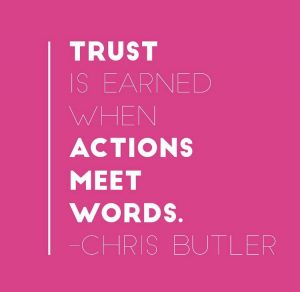Tima and time again I would say, “Where is the professional development for Instructional Coaches?” As coaches, we seem to always be the giver of knowledge and then are left to our own devices to teach ourselves. Sometimes that is fine but I never knew what I was missing until I was given an amazing opportunity to be involved in PIIC, Pennsylvania Institute for Instructional Coaches. At PIIC we meet with other Instructional Coaches within our county and learn best practices for coaching teachers. This year I was selected to represent our district at the state PIIC conference which takes place three times a year. I have come to learn many lessons.
Lesson #1 – Networking and Collaboration are Key to Enhancing My Skills.
I am energized sharing ideas with other coaches and hearing from them what they are doing. It never ceases to amaze the ideas I come away with from these conferences. This time around my sessions were around Collaborative Lesson Planning, Growth for ALL looking at DOK in content areas and using a step by step process to analyze tasks, The Energy Bus and getting your building on the bus, Data Collection Tools for coaching conversations, etc. The best part is that ALL resources and presentations are available for us to use with other coaches and teachers!
Lesson #2 – Be Grateful.
I am SO fortunate to have a support system of other coaches within my district AND county to reach out to. There are some coaches that are literally on an island because they are the ONLY coach in their district. Principals of some of the coaches I met do not offer a lot of support or don’t even value coaching! WHAT!?!?!? I can do what I do and have become a leader among other coaches ALL because my principal works with me, listens to me, and allows me to do the job I was hired to do!
Lesson #3 – Go Where People Live in Order to Coach Them
I love Twitter! It’s not a secret. I tell everyone. I want everyone to be with me! When we started the school year, there were 3 teachers on Twitter. As we close the school year we have 36 teachers signed up! Yay! That sounds great however, out of the 36, only about 12 actually use it. Don’t get me wrong, I am SO happy with that! My teachers do not live in Twitter. It is not being used to REALLY benefit teachers the way it could. So where do they live? They live on Facebook. They live on email. They live face to face. So I need to go where they live. The end goal to share and collaborate and to develop a PLN. I was introduced to a session on Google Communities and I definitely want to explore this more. Maybe this where all the places the teachers live connect?
Lesson #4 – Not Everything Needs to Change/Happen RIGHT AWAY!
I think now that I am coming to the end of my second year as a secondary instructional coach, I am ready to refocus again. Year one I learned. I learned A LOT! Year two, I started to put somethings in place, including a coaching schedule to follow the PIIC BDA cycle. Year three, my focus will be on getting into classrooms. I feel like this is a natural progression. I have made connections and built relationships with teachers over the past 3 years and I understand the secondary mentality a bit more. I have to slow down and revisit topics and lead change, not expect change tomorrow. A session I attended around a book called The Engery Bus was all about getting people on the bus! One of the rules is to not waste time with people who are not on the bus! I’m going to focus on those that want to learn and change and innovate! I’m getting excited and energized just typing this! Eventually change will come!
Lesson #5 – Nothing is done and finished!
I will add to this list. The type A in my is kinda cringing leaving this unfinished and unpolished. 😉

